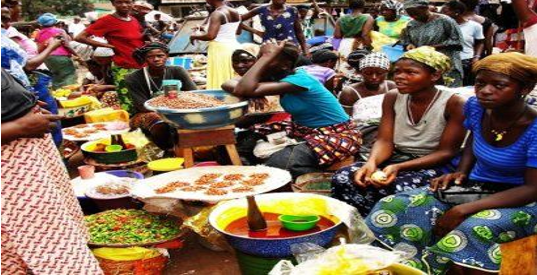Some financial experts have urged the Federal Government to adopt stable policies that will incentivize domestic production and address the foreign exchange demand responsible for the soaring inflation.
This was disclosed in Lagos on Friday in Nigeria News today during an interview with NAN
A lecturer of economics at Pan Atlantic University, Dr. Austine Nwaeze, said the government should execute favourable policies that would spur more production.
“The authorities could implement fiscal and monetary tools that will support the growth of indigenous production firms.
“This will encourage local manufacturing companies to embrace backward integration and reduce the volume of imported commodities,” Nwaeze said.
He noted that the Federal Government must discontinue the Central Bank of Nigeria's (CBN) ways and means of funding budget deficits.
“The CBN intervention is practically responsible for the increasing inflation rate in recent times,” Nwaeze said.
Also speaking, the founder of the Independent Shareholders Association of Nigeria, Mr. Sunny Nwosu, said the government should address the rising foreign exchange demand fueling inflation.
“In spite of the apex bank reforms in the foreign exchange market, many multinationals are still finding it difficult to repatriate their funds, which is detrimental to business and allows currency speculators to thrive,” Nwosu said.
He also enjoined the Federal Government to increase the budget allocation for the agricultural sector to tackle food-induced inflation.
“Allocating about 10 percent of the annual budget to modernise our agricultural practices will enhance food production.
"The government could have schemes that absolve the excess so as to ensure competitive prices and encourage farmers to remain in business,” Nwosu added.
Also, the President of the Standard Shareholders Association of Nigeria, Mr. Godwin Anono, said the Federal Government should put in measures to check the impact of climate change on agricultural outputs.
Anono encouraged the Federal Government to give more support to all partially built refineries to become operational.
“This will enable the country to become self-reliant on refined petroleum products and conserve scarce foreign exchange.
“The nation’s inflation rate will begin to reduce with less importation,” Anono said.
It was reported that Nigeria’s inflation rate surged to 27.33 percent in October.
This showed an increase of 0.61 percent when compared with 26.72 percent recorded in September.
Major contributors to the increase in inflation were food and non-alcoholic beverages, housing, water, electricity, gas, and other fuel, clothing and footwear, transport, furnishings, and household equipment and maintenance.
NAN

Business

.jpg)









